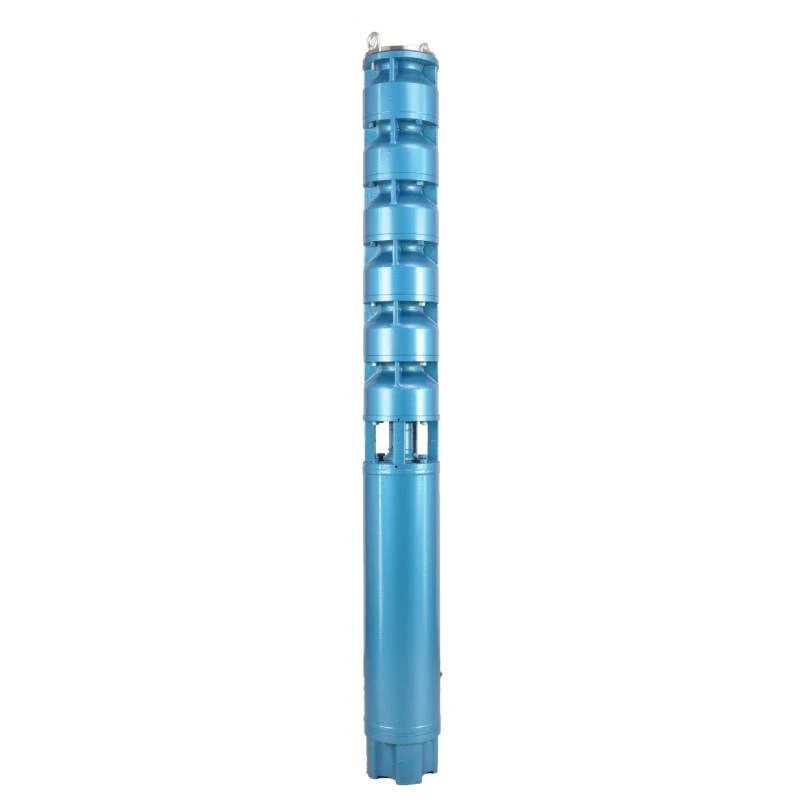Nov . 05, 2024 08:55 Back to list
submersible centrifugal pump
Submersible Centrifugal Pumps An Overview
Submersible centrifugal pumps are specialized pumps designed to operate underwater, making them essential in various industrial and municipal applications. Unlike traditional pumps, which are typically installed above the fluid being pumped, submersible pumps are submerged in the liquid. This unique configuration offers numerous advantages, particularly in applications such as sewage treatment, groundwater extraction, and liquid transfer services in water, oil, and chemical industries.
Working Principles
The operation of a submersible centrifugal pump hinges on the principle of centrifugal force. When the pump is submerged in a liquid, an electric motor drives an impeller. The impeller, key to the pumping action, spins rapidly, creating a low-pressure area that draws fluid into the pump. As the fluid enters, it is forced outward through the impeller's vanes, converting kinetic energy into pressure energy. This action pushes the fluid up through the pump and out through piping connected to the discharge.
Design Features
Submersible centrifugal pumps are engineered to withstand harsh underwater environments. Some of the key design features include
1. Waterproof Motor The motor is sealed within a protective housing to prevent water ingress. This is critical as submersible pumps often operate in depths where water pressure is significant.
2. Corrosion-Resistant Materials Components are constructed from durable materials like stainless steel, bronze, or specialized plastics to resist corrosion from chemicals and abrasive fluids.
3. Compact Structure The design is typically more compact than surface pumps, allowing for easier installation in confined spaces or areas where accessibility is limited.
4. Built-in Thermal Protection Many models come with thermal overload protection to ensure the motor does not overheat, enhancing longevity and reliability.
Applications
Submersible centrifugal pumps have a wide range of applications, including
- Sewage and Wastewater Management These pumps are commonly used in municipal sewage treatment plants to lift wastewater from lower to higher elevations.
- Groundwater Extraction Farmers and industries utilize submersible pumps for efficient irrigation and water supply from wells.
- Industrial Applications In chemical plants, mining industries, and construction sites, these pumps effectively handle abrasive and non-abrasive liquids.
submersible centrifugal pump

- Crisis Management During flooding events, submersible pumps are invaluable for draining excess water and restoring normalcy in affected areas.
Advantages
The popularity of submersible centrifugal pumps stems from several inherent advantages
- Efficiency They are highly efficient due to their ability to pump liquids from great depths without losing performance.
- Less Noise Submersible pumps operate quietly since they are submerged in fluid, making them suitable for residential areas and sensitive environments.
- Reduced Space Requirements Their compact design saves space, allowing for effective installation in tight locations.
- Lower Operating Costs With fewer moving parts exposed to the atmosphere, maintenance and operating costs are generally lower compared to traditional pumps.
Challenges
Despite their numerous benefits, submersible centrifugal pumps do face some challenges
- Initial Cost The upfront investment can be significant due to the advanced materials and technology involved in manufacturing these pumps.
- Maintenance Complexity While submersible pumps require less frequent maintenance, servicing them can be more complicated and often requires professional intervention.
- Dependence on Power Supply These pumps need a reliable power supply to function effectively, making them less suitable in areas with unstable electricity.
Conclusion
Submersible centrifugal pumps represent a pivotal technology in modern fluid management, providing efficient, reliable, and quiet solutions for various applications. As industries evolve and grow, the demand for innovative pumping solutions will continue to rise, further cementing the importance of submersible centrifugal pumps in meeting both commercial and environmental needs. Their ability to operate efficiently in challenging conditions highlights their essential role in today's fluid management systems, ensuring the safe and effective transfer of liquids across diverse sectors.
-
Water Pumps: Solutions for Every Need
NewsJul.30,2025
-
Submersible Well Pumps: Reliable Water Solutions
NewsJul.30,2025
-
Stainless Steel Water Pumps: Quality and Durability
NewsJul.30,2025
-
Powerful Water Pumps: Your Solution for Efficient Water Management
NewsJul.30,2025
-
Oil vs Water Filled Submersible Pumps: Which is Better?
NewsJul.30,2025
-
Deep Well Pumps: Power and Reliability
NewsJul.30,2025
-
 Water Pumps: Solutions for Every NeedWhen it comes to handling dirty water, the dirty water pump is a must-have.Detail
Water Pumps: Solutions for Every NeedWhen it comes to handling dirty water, the dirty water pump is a must-have.Detail -
 Submersible Well Pumps: Reliable Water SolutionsWhen it comes to ensuring a reliable water supply, submersible well pumps are a top choice.Detail
Submersible Well Pumps: Reliable Water SolutionsWhen it comes to ensuring a reliable water supply, submersible well pumps are a top choice.Detail -
 Stainless Steel Water Pumps: Quality and DurabilityWhen it comes to choosing a water pump, the stainless steel water pump price is a crucial factor.Detail
Stainless Steel Water Pumps: Quality and DurabilityWhen it comes to choosing a water pump, the stainless steel water pump price is a crucial factor.Detail
